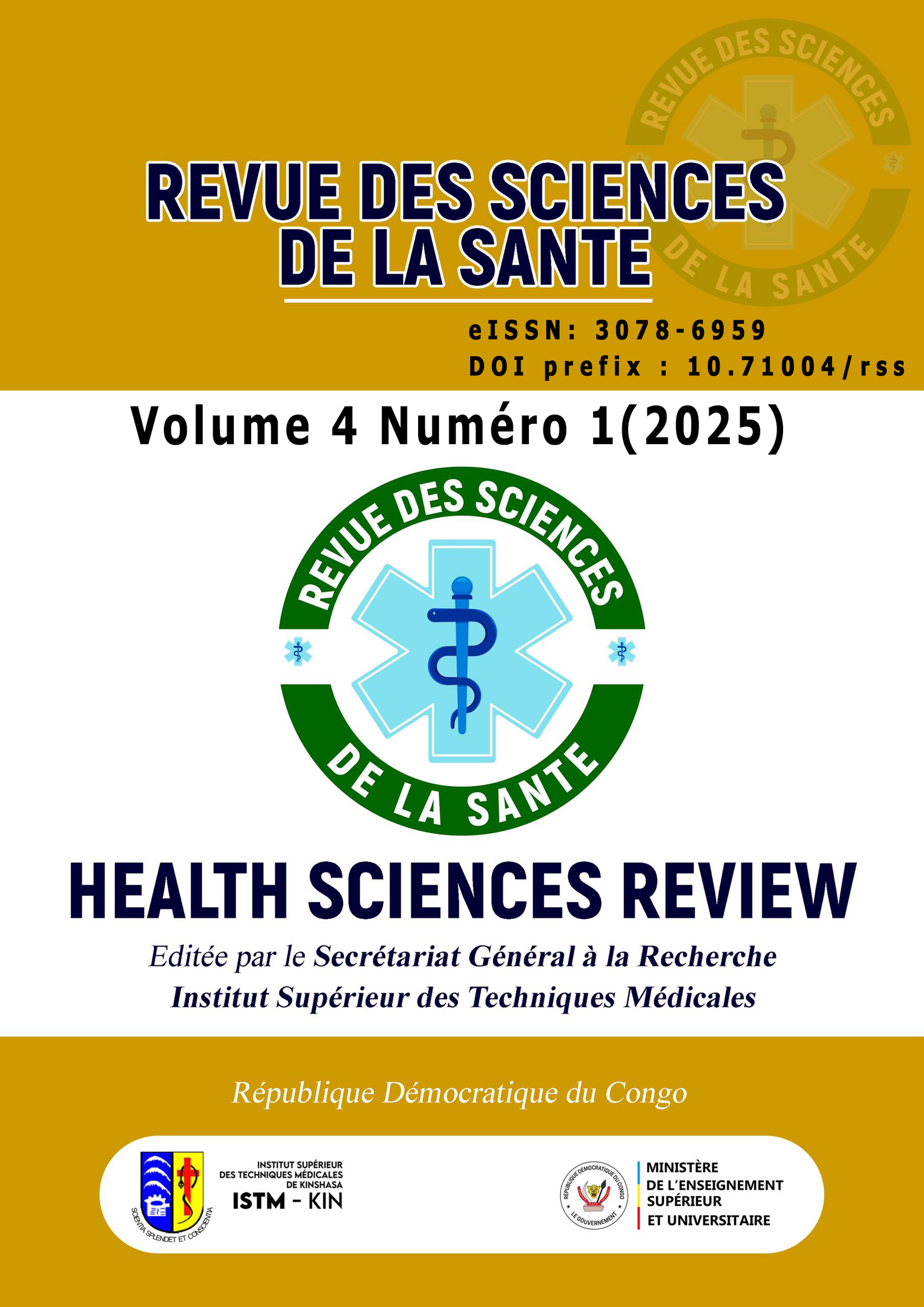Abstract
In the Kadutu health zone, although 65% of women use antenatal care (ANC) services, compared to 35% who do not attend due to inaccessibility, precariousness, etc., the perception of pregnant women remains a significant determinant in the use of ANC services. The general objective here is to understand the perception, obstacles and expectations of pregnant women regarding the use of ANC services in this region. Using a descriptive exploratory design based on phenomenology, semi-structured interviews were conducted with fifteen participants in ANC services in the Kadutu Urban Health Zone. The results show that pregnant women perceive ANC services sometimes positively, sometimes negatively. The reasons for non-attendance of pregnant women at ANC activities include: economic, temporal, social, and health personnel factors. The measures proposed to increase the attendance of pregnant women at ANC are: the construction of local health infrastructure, the equipping of health centers with equipment, medicines and qualified midwifery staff, the reduction of costs, or even the free provision of ANC services, raising awareness among families, and training health personnel. This study highlights the need to improve access to and the quality of ANC services for pregnant women in Kadutu, in order to reduce maternal and infant mortality.
References
[1] W. H. Organization., «Guidelines on antenatal care for a positive pregnancy experience. https://www.who.int/publications/i/item/9789240062007,» 2021.
[2] Organization world health (WHO), «Guidelines on antenatal care for a positive pregnancy experience. https://www.who.int/publications/i/item/9789240062007,» 2021.
[3] E. Commission, «Health at a Glance: Europe 2021.,» OECD Publishing., Europe, 2021.
[4] M. d. Solidarités, «Rapport sur la santé des femmes en France.,» Gouvernement Français., paris, 2021.
[5] A. G. Bhatia, «Maternal health care utilization in India: A systematic review,» International Journal of Health Sciences, p. 16, 2022.
[6] UNICEF, «State of the World’s Children: On My Mind – Promoting, protecting and caring for children’s mental health. UNICEF.» , 2021.
[7] A. K. Kayentao, «Facteurs Associés à la Problématique de la Consultation Prénatale dans les Districts Sanitaires de Kita,» pp. 22-27, 2022.
[8] J.-P. O. De Sardan, .La qualité des soins de santé maternelle en milieu rural au : Burkina Faso Une étude sur les perceptions et les pratiques. s, 5, Burkina Faso: Revue d'anthropologie des connaissance, 2011.
[9] W. Bank, «Maternal mortality ratio (modeled estimate, per 100,000 live births). .,» World Development Indicators, p. 3, 2021.
[10] Mbuyi, «Prenatal care and maternal outcomes in Lubumbashi, Democratic Republic of the Congo. 34,» Journal of Maternal-Fetal & Neonatal Medicine,, p. 34, 2021.
[11] Kibombo, «Access to maternal health services in conflict-affected areas of the Democratic Republic of the Congo: A qualitative study.,» BMC Health Services Research, p. 22, 2022.
[12] C. Kanyamuna, «Évaluation des services de santé reproductive dans la province du sud-kivu,» revue de la santé publique, pp. 145-152, 2021.
[13] M. Bahati, «rapport annuel exercice 2019 de la zone de santé de kadutu,» DPS Sud-Kivu, bukavu, 2020.
[14] A. SmithJ&Brown, « Reducing fear and increasing feelings of control in pregnant women: The impact of regular prenatal consultations. , 15,» Journal of Maternal Health, p. 15, 2021.
[15] C. Dupont, «Barriers to prenatal care utilization: A qualitative study.,» International Journal of Health Services, p. 52, 2022.
[16] A. Gagnon, «L'éducation prénatale et ses impacts sur la santé maternelle,» Presses de l'Université du Québec., p. 123, 2007.
[17] M. a. Khan, «Surveillance de la santé maternelle: rôles et défis des consultations prénatales.,» Revue de santé publique, p. 28, 2021.
[18] M. T. Garcia, « The importance of laboratory tests in prenatal care: A systematic review.,» Journal of Pregnancy and Child Health, p. 8, 2021.
[19] I. Hildingsson, « Women's experiences of care during pregnancy and childbirth: a qualitative study.,» BMC Pregnancy and Childbirth, p. 15, 2014.
[20] C. e. Bourgeois, « L'impact des consultations prénatales sur la santé maternelle.,» Journal de la santé publique,, p. 45, 2018.
[21] P. M. Kearney, « Maternal education and health behaviors during pregnancy: a systematic review.,» BMC Pregnancy and Childbirth, p. 16, 2016.
[22] J. C. Hernandez, « Peer support and stigma among single pregnant women: A qualitative study.,» BMC Pregnancy
[23] A. e Moussa, «Consultations prénatales et résultats de santé: une analyse systématique.,» Médecine et santé, , p. 56, 2019.
[24] S. McLafferty, «The role of midwives in improving maternal and infant health outcomes: a systematic review.,» Midwifery, p. 31, 2015.
[25] E. A. Henneman, « The impact of nurse workload on patient outcomes: a systematic review.,» Nursing Research, p. 66, 2017.

This work is licensed under a Creative Commons Attribution-NonCommercial-ShareAlike 4.0 International License.
Copyright (c) 2025 Ngbolua et al

